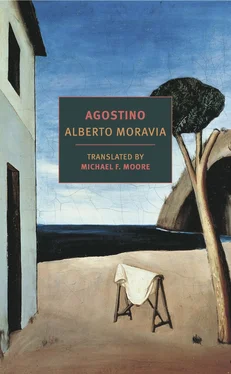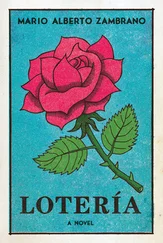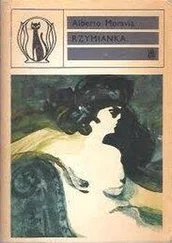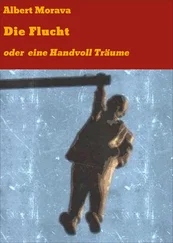The blond stood up and went to set the pack on the table. “Good boy, Sandro,” said Saro.
“What if I don’t want to?” the older boy shouted defiantly.
“Come on, Tortima. You’d better hand them over,” shouted voices from all sides. Tortima looked around and then at Saro who, with the six fingers of his right hand wrapped around the cigarette pack, was staring at him through narrowed eyes. Sighing, “All right, but it’s not fair,” Tortima stood up and put the other pack on the table as well.
“Now I’ll divvy them up,” said Saro in a soft and friendly voice. Without removing the cigar from his mouth, squinting his eyes, he opened one of the packs, took out a cigarette with stubby multiple fingers that seemed unable to clench it, and tossed it to the black boy, “Here, Homs.” He took another cigarette and tossed it to another boy. A third flew into the cupped hands of Sandro. A fourth hit Tortima straight in his stolid face. And so it went. “Want one?” he asked Berto, who having swallowed his tears had come back, as quiet as a mouse, to lie down among his buddies. Chastened, he nodded yes, and a cigarette was launched in his direction. Once each of the boys had received a cigarette, he started to close the still half-full pack, but he stopped and asked Agostino, “Hey you, Pisa. Want one?” Agostino would have said no, but Berto gave him a punch in the ribs whispering, “Ask for it, you dummy. Then we can smoke it together.” Agostino said yes and got his cigarette too. Then Saro closed the pack.
“What about the other ones… the other ones?” the boys all shouted.
“The other ones you’ll get in the next few days,” Saro answered calmly. “Pisa, take these cigarettes and put them back in the shack.”
No one breathed a word. Agostino clumsily took the two packs and, stepping over the reclining boys, made his way to the shack and entered. There appeared to be only one room, and he liked its smallness, like a house in a fairy tale. The ceiling was low, with white beams and unpainted walls of rough planks. A dim subdued light entered the room through two tiny windows, complete with window-sills, small square windowpanes, shutters, curtains, and even a few flowerpots. One corner was occupied by the bed, neatly made, with a bleached white pillow and a red blanket. In another corner there was a round table and three chairs. On the marble top of a chest of drawers were two bottles containing miniature sailboats or steamships. The walls were covered with sails hung from nails, oars, and other boating equipment. Agostino thought anyone who owned a shack like this, so small and cozy, must be truly enviable. He approached the table, on which there was a large chipped porcelain bowl filled with cigar butts, set down the two cigarette packs, and then came back out into the sunlight.
All of the boys, lying prone on the sand near Saro, were smoking with big demonstrative gestures of delight. They were talking about something he couldn’t quite grasp. “I tell you it was him,” Sandro was saying.
“His mother is pretty,” an admiring voice said, “the best-looking woman on the beach. Homs and me, we snuck under her cabin to see her getting undressed, but she lowered her dress right on top of where we were looking and you couldn’t see a thing… she’s got nice legs… and those tits…”
“Her husband’s never around,” a third voice remarked.
“Don’t worry. She knows how to console herself. You know who she’s doing it with? That guy from Villa Sorriso… the dark-haired one. He comes to pick her up every day with his boat.”
“You think he’s the only one? She does it with anyone that asks,” another boy said maliciously.
“Maybe, but I still say it’s someone else,” another one insisted.
“Hey, Pisa,” Sandro asked Agostino authoritatively, “isn’t your mother the lady at the Speranza beach? Tall, dark-haired, wears a two-piece striped bathing suit? With a beauty mark on the left, near her mouth?”
“Yes, why?” Agostino answered uneasily.
“It’s him! I knew it was him!” Berto said triumphantly. And in a fit of malicious envy, “You’re the third wheel, eh? Out on the boat it’s you, her, and lover boy. That makes you the third wheel.” His words were followed by gales of laughter. Even Saro was smiling beneath his mustache.
“I don’t know what you’re talking about,” Agostino replied, blushing, uncomfortable and uncomprehending. He felt as if he should object, but these uncouth jokes aroused in him an unexpected, almost cruel feeling of pleasure, as if the boys had unknowingly avenged through their words all the humiliations that his mother had inflicted on him lately. At the same time he was horrified at how much they knew about his affairs.
“Don’t play stupid with us,” said the usual malicious voice.
“Who knows what they do. They always go so far out to sea. Tell me,” Tortima grilled him with mock seriousness, “tell us what they do. He kisses her, right?” He placed the back of his hand against his lips and planted a big kiss on it.
“Actually,” said Agostino, his face red with shame, “we go out to sea to go swimming.”
“Oh, to go swimming,” several voices said sarcastically.
“My mother goes swimming and so does Renzo.”
“Ah, so his name is Renzo,” one of the boys said confidently, as if he had discovered a lost thread in his memory. “Renzo… he’s tall, tanned, right?”
“What do Renzo and your mamma do?” Berto suddenly asked, emboldened. “They”—and he made an expressive gesture with his hands—”and you sit there watching them, right?”
“Me?” Agostino repeated fearfully, looking all around. Everyone roared, smothering their laughter in the sand. Saro was the only one to observe him attentively, without moving a muscle or saying a word. Agostino gave him a look of despair, as if imploring him for help.
Saro seemed to understand his look. He took the cigar from his mouth and said, “Can’t you see he knows nothing?”
A sudden silence followed the clamor. “How can he know nothing?” asked Tortima, who hadn’t realized it.
“He knows nothing,” Saro replied plainly. Then he turned to Agostino, lowering his voice. “Say, Pisa… a man and a woman… what do they do together? Do you know?”
Everyone seemed to be holding their breath. Agostino looked at Saro, who was smoking and studying him through half-closed eyes. He looked at the boys, who all seemed about to burst into laughter, then he repeated mechanically, as his eyes clouded over, “A man and a woman?”
“Yes, your mother and Renzo,” Berto explained brutally.
Agostino wanted to say, “Don’t talk about my mother.” But he was so confused by the swarm of sensations and dark memories aroused in him by the question that he was left speechless.
“He doesn’t know,” Saro interrupted, switching his cigar from the right to the left corner of his mouth. “Come on, who wants to tell him?” Agostino looked around, dismayed. It was like being at school, but with what teacher and what pupils? “Me, me, me,” all the boys shouted at once. For a moment Saro’s uncertain gaze scanned all those faces inflamed in emulation. He said, “You guys don’t really know either. You’ve only heard about it. Let someone who really knows about it do the talking.” Agostino saw the boys go silent and look at one another. “Tortima,” someone said. The boy’s face lit up in a vain expression. He started to stand, but a rancorous Berto called out, “He made the whole thing up. It’s a pack of lies.” “What do you mean it’s a pack of lies?” shouted Tortima, pouncing on Berto. “You’re the liar, you little bastard.” But this time Berto was too quick for him. He fled, poking his head out from behind a corner of the shack, making faces and sticking out his tongue at Tortima, who shook his fist at him threateningly and shouted, “Don’t you dare come back.” But Tortima’s candidacy had been somewhat diminished by Berto’s outburst. “Let Sandro tell him,” all the boys cried in unison.
Читать дальше












